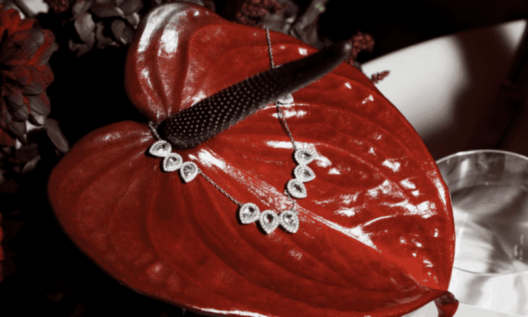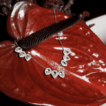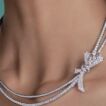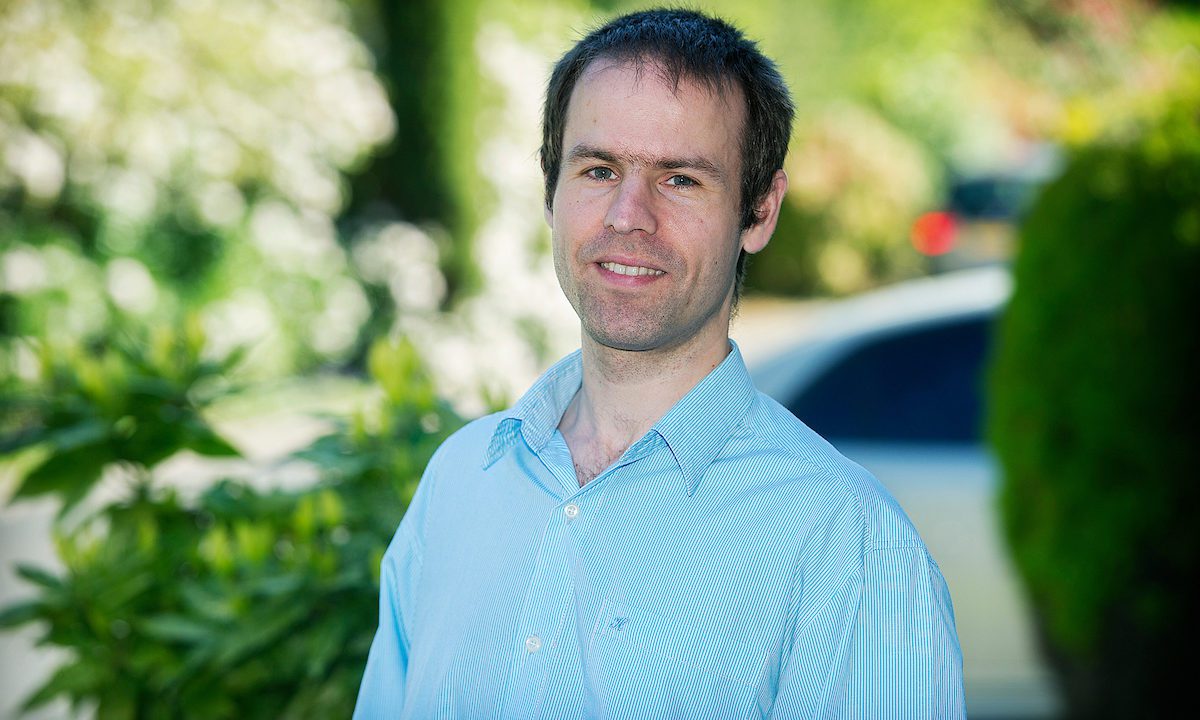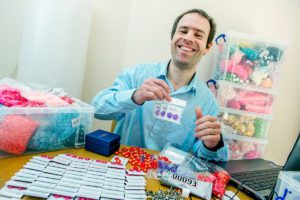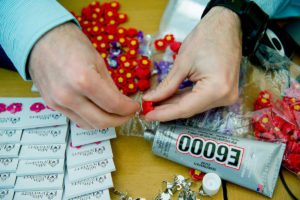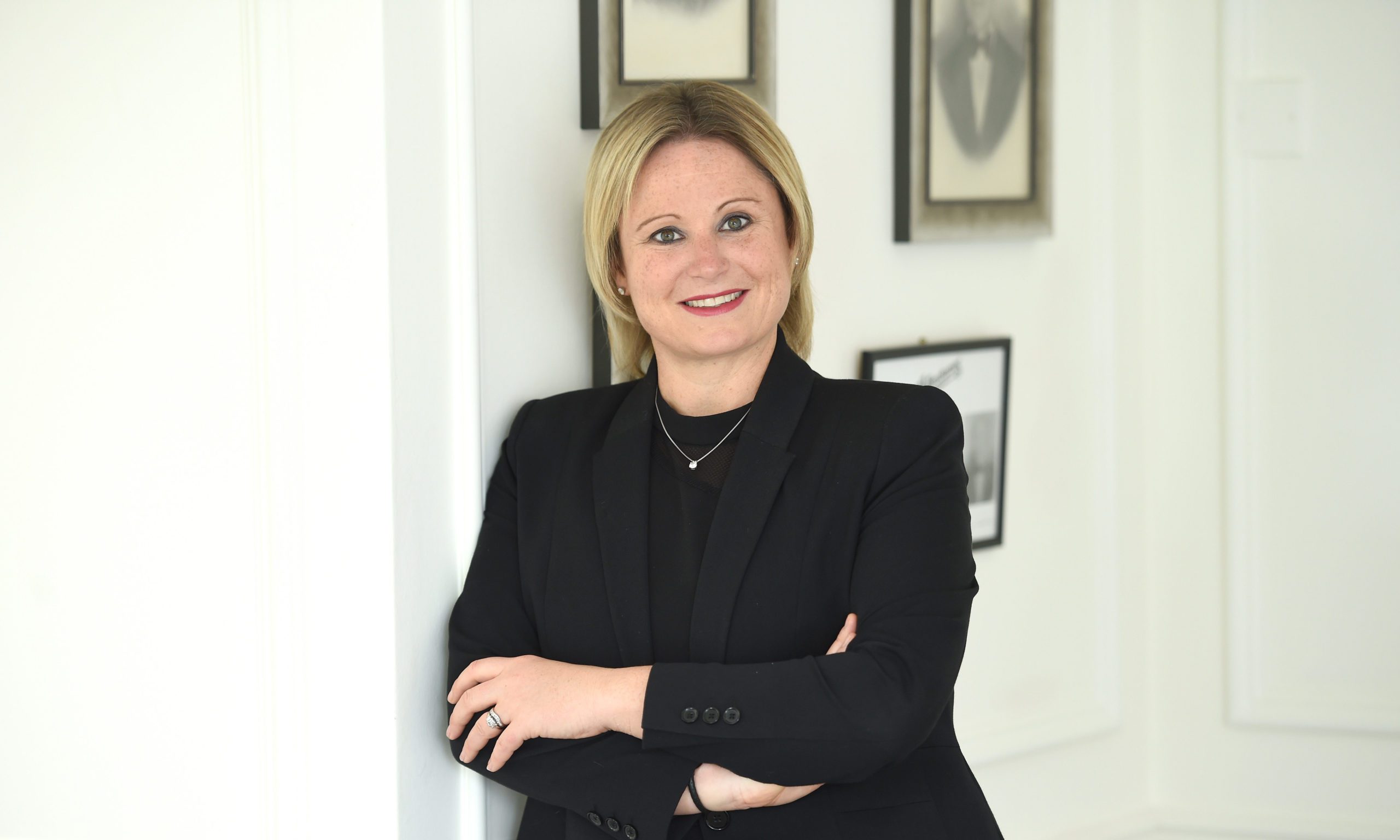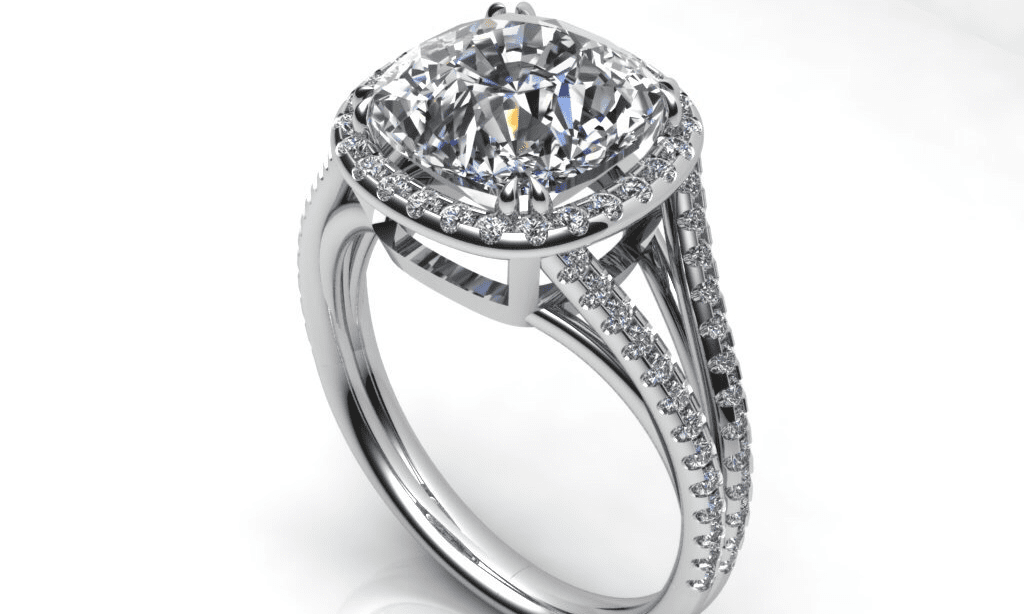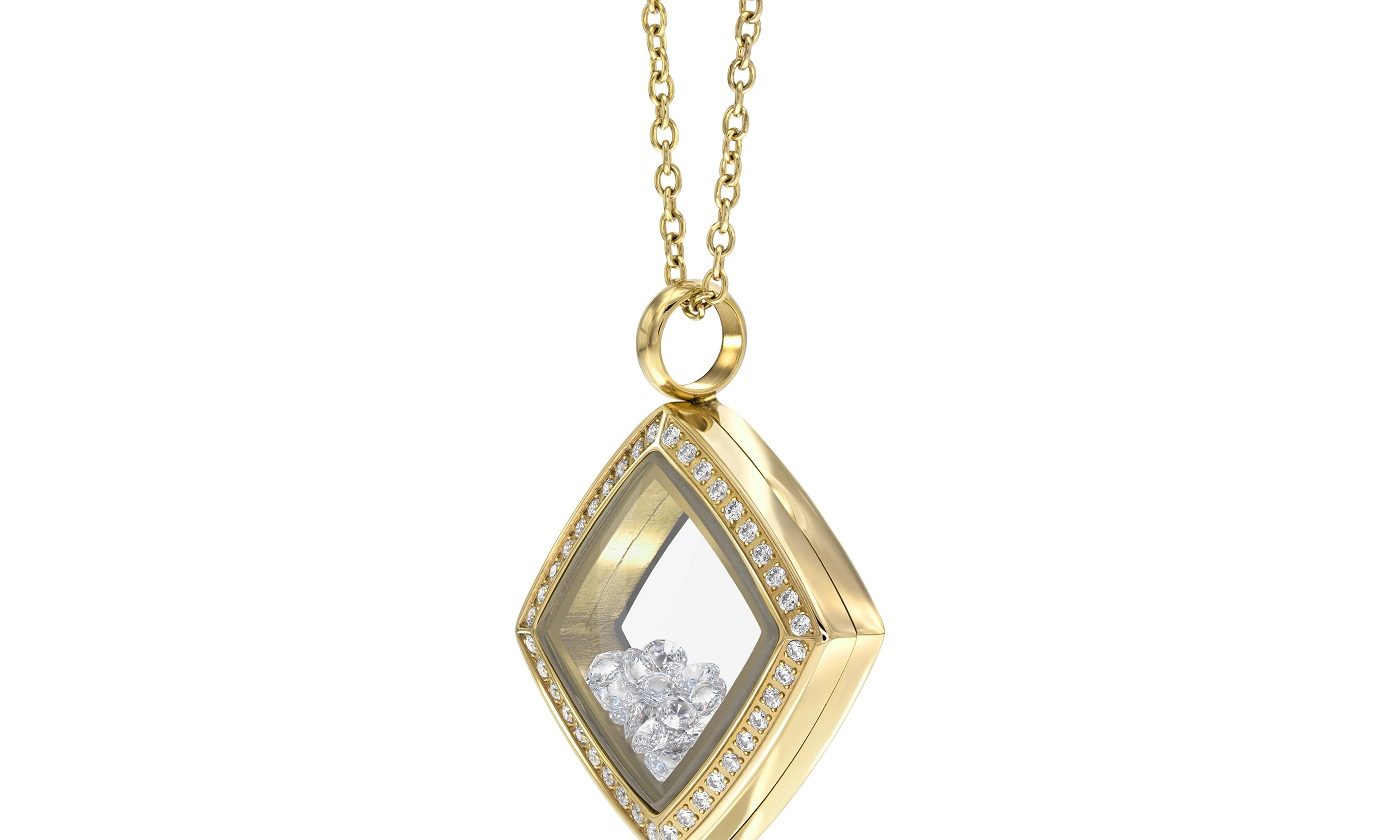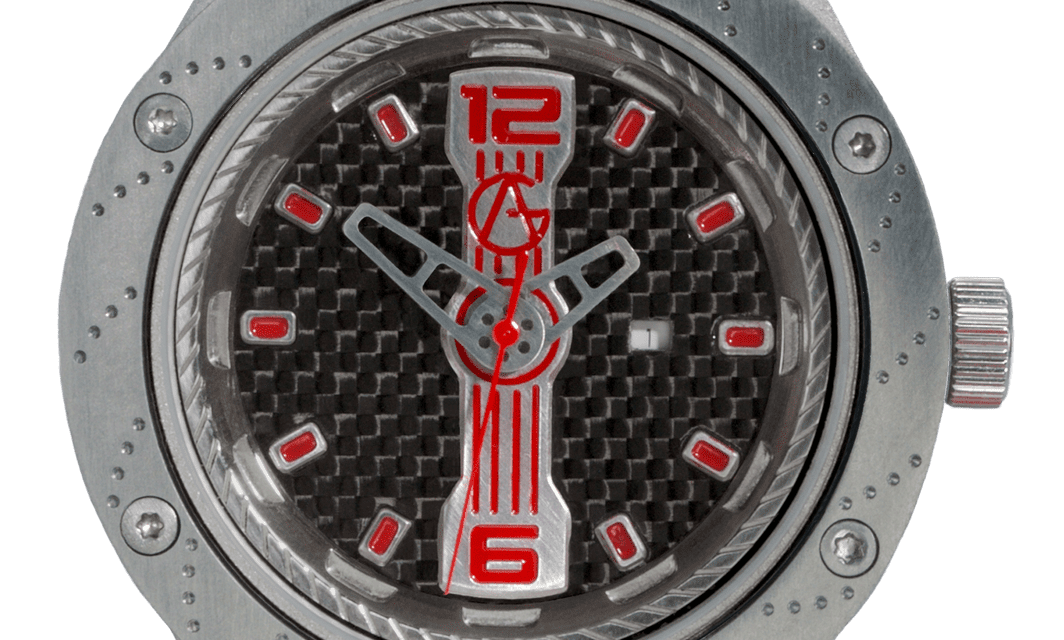Register to get 2 free articles
Reveal the article below by registering for our email newsletter.
Want unlimited access? View Plans
Already have an account? Sign in
Guenther Wurmbauer, 36, originally from Austria, spent five years studying at university before becoming a nuclear physicist. When his job took him to the west of Scotland in 2010, his wife Jareeya struggled to find work and so decided to sell jewellery online. Sourcing products in the Far East, the couple then used their home in Largs to store items and then began selling through their own website. They now sell a wide range of jewellery; from handcrafted wood and stone pieces to rhodium and gold plated items to customers in Scotland and around the world.
Can you give a summary of how Idin Jewellery was formed?
While I had the comfort of having a very secure job and relatively good salary at Hunterston power plant, my wife struggled to find a job in the Scottish seaside town where we live. She wanted to do something more rewarding and fulfilling, so she came up with the idea of starting her own jewellery business. We invested some of our savings to buy stock and start up.
The first couple of years were slow but steady, Jareeya has a great sense of style and a real interest in getting new and interesting products. At first I kept up my job at the power plant during the day and pitched in to help Jareeya with the business at night. Sales were encouraging, but everything changed after we got an invitation to sell with Amazon Marketplace. We were a little hesitant at first, but we thought we would give it six months as a trial and we haven’t looked back since.
Now 95% of our business comes through Amazon, it’s a huge part of what we do and has really helped the business. I have been able to leave my job at the power station and go full time with Idin Jewellery.
What were the main difficulties when you first started running Idin from your home?
The first main difficulty was generic to any kind of business when you start out as a newbie: To find your way around the business world, dealing with the registration process and ensure you stay on the right side of the law and taxes.
Choosing your own home as the place of work was a good thing at the beginning as it gives you the flexibility to work any time you want and the line between ‘business hours’ and leisure time was blurry. We weren’t tied to specific office or store opening times. One common problem with home-working is the many distraction you face but we enjoyed working on the business and this allowed us to stay focused and we didn’t have the need to rent an office. Later, a big challenge was to find storage space for our ever-increasing product lines and all the stock we held – an obstacle that one wouldn’t have if running a services or digital product business.
What’s the biggest difference going from being a nuclear physicist to running a jewellery store?
Physics is an area that is dominated by numbers and formulas. Leaving quantum physics aside, things making sense and applying logic allows you to tackle any problem you may face. In the jewellery sector, you are confronted with aesthetics. Beauty is in the eye of the beholder and this is hard to quantify in numbers and base your business decisions on. This aspect still presents a challenge to me: you think you have the most stunning piece of jewellery in front of you – and it doesn’t sell, and vice-versa.
Are there any skills that were transferable from being a physicist to being a jeweller, if so what?
Interestingly, being a physicist has its advantages even in an industry that relies on good taste rather than hard science. A great benefit my education brought was that you learnt to solve problems on your own rather than having to rely on someone presenting the solution to you. You are also dealing a lot with technology and computers and we use this to our advantage as an online retailer.
For example, I had to learn from scratch on how to build a website and the learning paid off as we can avoid off-the shelf websites that come with subscription fees and often have a rather sluggish performance. This approach saves us costs and we are in full control of our websites.
Having a good grasp of computers also helped us to streamline many time-consuming tasks and let technology do the laborious tasks for us. Our European VAT calculation only takes a few minutes to complete and we are dealing with several thousand transactions per month.
When you deal with fine jewellery, you also get quickly confronted with more technical terms and what often needs extra explanations in textbooks are basic terminology in physics. For the future, we are also contemplating putting neural networks into use. Most likely it will be more an academic exercise but as a physicist you like to try out new – even ambitious – ideas and see what’s happening.
How hard was it trying to juggle both jobs at the same time?
Time was a valuable asset during the period when I still had my day job and was juggling the new business at the same time. During the final days before Christmas of our first year I found myself working late into the night and then carrying out a job that comes with serious responsibilities and requires attention to detail the next day. Miraculously, I could manage all this pretty well, but looking back, I don’t know how I did it!
How have things changed since you received the offer from Amazon Marketplace?
It was a big surprise what difference it made. Before our invitation from Amazon, we maintained a website and had a few sales but nothing that came close to running a self-sustaining business. The first few years on Amazon weren’t miraculous either but we saw steady improvements in our sales over time. Since starting with Amazon Marketplace we have grown from running a small operation for the sake of giving my wife a purpose in her working life to becoming a serious business that sells our products to people all over the world. Being on Amazon has really helped us grow the business and reach customers we might never have had with only our own website.
How has it been since you left your job at the power plant?
Leaving work to go full time with our business was a great move. Being my own boss means I can arrange my day with a lot more freedom. Bringing the kids to school or popping out to the shops isn’t a problem as long as I get the work done! We have two children so any opportunity to spend more time with them is a good thing. At the same time, I love my job and even though I maybe work more hours than I did at the power plant, everything we do is for the family business so it’s worth it.
How did you go about sourcing the jewellery from the Far East?
My wife is from Thailand and this gives us the advantage to having access to Thai suppliers, who often don’t speak English. She also deals with most of our Chinese suppliers and, perhaps most importantly, my wife is a tough negotiator. That said, dealing with Far East suppliers also has its downfalls. For example, the quotes you receive are always calculated to take negotiations into account. These negotiations can run over several days and in some instances, you might be better to source it in the UK, both in terms of price as well as delivery timeframes.
In the rare event of any disputes, it can escalate into a daunting task of getting a replacement or refund, depending on the supplier. We are actively looking into moving our supply chain into the UK or Europe, but depending on the kind of product, it’s often easier said than done.
How do you go about sharing the responsibilities of running Idin with your wife?
We established a routine that works best for both of us: My wife knows best how to pack orders and manage our stock – it constantly amazes me that she always seems to remember where items are stored despite not having a proper inventory management system in place yet! She also deals with sourcing our products and looking into new product lines. I deal with the technical aspects of the business, being responsible for the strategic vision of the business and also deal with non-English customer enquiries in German, Italian, French and Spanish.
What are the advantages and disadvantages of not having an actual physical store, in your opinion?
We feel that it is harder to showcase your products. You can put great pictures on your website, even complement them with videos, but humans still prefer the touch and feel aspect of products. The digital age can’t replace the physical world and we see this regularly with feedback about the size of a product, that looks bigger on the screen or the colours look different on a customer’s monitor.
On the plus side, not having a physical store saves a lot of money in rent and it’s hard to predict whether the sales will cover the costs for having the store. A physical shop would also need extra staffing – which is associated with extra costs and overheads. Also, you would need to ensure that it is always open at the set opening hours. We never operated a brick-and-mortar store but, overall we feel it would be too risky and would only consider it for high-end jewellery which is harder to sell online when you are not a big and well established brand.
Selling online with Amazon Marketplace works for us because we can put our products in front of millions of potential customers all over the world, and as we up-scale our business we can use Amazon services to fuel that growth. For example, if we get to the point where running the business from home is too difficult, we know that Fulfilment by Amazon can take care of the storage, picking and distribution of our products.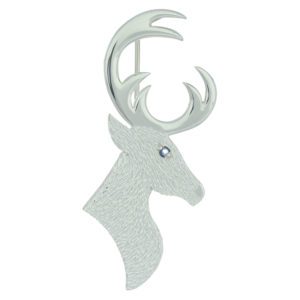
What advice would you give to people interested in running their own jewellery store from home?
Make sure you stay focussed and have a work routine in place as it can be easy to be distracted by all the things around your home. Don’t lose your connection to the outside world as it can be quick to create your own bubble in which you are comfortable with but then lose touch with anything else going on. It is also very helpful to meet other like-minded people for example in business forums.
I would say it’s also key to have a clear business plan and be really committed to what you’re doing. We were lucky in that I had a good job and qualifications to fall back on if it didn’t work out, but fortunately for us it did and we’ve never looked back.



